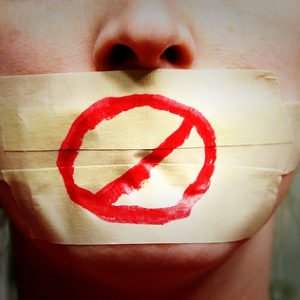H.L. Mencken, journalist and essayist, wrote in 1940, “Freedom of the press is limited to those who own one.”
Twenty years later, the same thought was reprised by A.J. Liebling of The New Yorker.
Today, these thoughts can be revived to apply, on a scale inconceivable in 1940 or 1960, to Big Tech, and to the small number of men who control it.
These men — Jack Dorsey of Twitter, Mark Zuckerberg of Facebook, and Sundar Pichai of Alphabet Inc., and its subsidiary Google — operate what, in another time, would be known as “common carriers.” Common carriers are, as the term implies, companies which distribute anything from news to parcels to gasoline. They are a means of distributing ideas, news, goods, and services.
Think of the old Western Union, the railroads, the pipeline companies, or the telephone companies. Their business was carriage, and they were recognized and regulated in law as such: common carriers.
The controversial Section 230 of the Communications Decency Act recognizes the common carrier nature of Big Tech internet companies by exempting them from libel responsibility. It specifically stated that they shouldn’t be treated as publishers. Conservatives want 230 repealed, but that would only make the companies reluctant to carry anything controversial, hurting free speech.
I think the possible repeal of 230 should be part of a large examination of the inadvertently acquired but vast power of the internet-based social media companies. It should be part of a large discussion embracing all the issues of free speech on social media which could include beefed-up libel statutes — possibly some form of the equal-time rule which kept network owners from exploiting their power for political purposes in days when there were only three networks.
President Donald Trump deserves censure, which he has gotten: He has been impeached for incitement to insurrection. I take second place to no one in my towering dislike of him, but I am shaken at the ability of Silicon Valley to censor a political figure, let alone a president.
That Silicon Valley should shut out the voice of the president isn’t the issue. It is that a common carrier can dictate the content, even if it is content from a rogue president.
This exercise of censor authority should alarm all free-speech advocates. It is power that exceeds anything ever seen in media.
The heads of Twitter, Facebook and Alphabet are more powerful by incalculable multiples than were Joseph Pulitzer, William Randolph Hearst and Henry Luce, or is Rupert Murdoch. They can subtract any voice from any debate if they so choose. That is a bell that tolls for all. They have the power to silence any voice by closing an account.
When Edward Murrow talked about the awesome power of television, he was right for that time. But now technology has added a multiplier of atomic proportions via the internet.
The internet-based social media giants didn’t seek power. They are, in that sense, blameless. They pursued technology, then money, and these led them to their awesome power. What they have done, though, is to use their wealth to buy startups which offer competition.
Big Tech has used its financial clout to maintain its de facto monopolies. Yet unlike the newspaper proprietors of old or Murdoch’s multimedia, international endeavors today, they didn’t pursue their dreams to get political power. They were carried along on the wave of new technologies.
It may not be wrong that Twitter, Facebook, and others have shut down Trump’s account when they did, at a time of crisis, but what if these companies get politically activated in the future?
We already live in the age of the cancellation culture with its attempt to edit history. If that is extended to free speech on the internet, even with good intentions, everything begins to wobble.
The tech giants are simply too big for comfort. They have already weakened the general media by scooping up most of the advertising dollars. Will the freedom of speech belong to those who own the algorithms?

